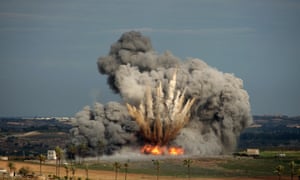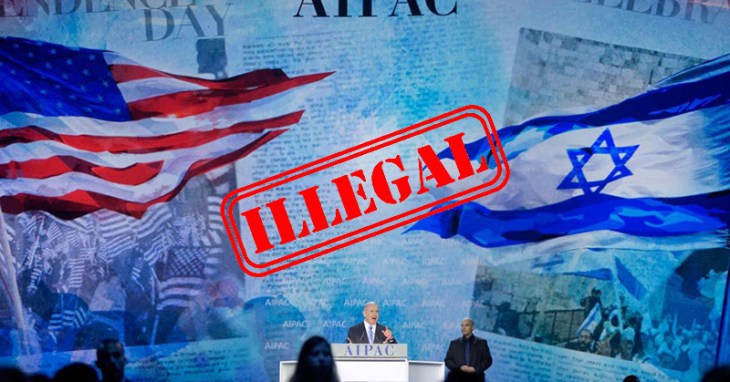Under the terms of the current 10-year deal, which expires in 2018, the US provides its Middle East ally with $3.1 billion worth of annual military aid�to bolster the country�s airpower, ground forces and missile defense systems.
The deal will represent the biggest pledge of US military assistance ever made to any foreign party, according to officials on both sides.
Israel wanted more
The MOU, despite representing the largest bilateral security aid deal in US history, fell short of what Netanyahu had sought, which was $45 billion over ten years, and was criticized by some lawmakers for not being enough.
The Memorandum of Understanding (MOU) was signed in Washington on Wednesday (September 14), but given the acrimonious personal relationship between the countries' two leaders, neither President Barack Obama nor Israeli Prime Minister Benjamin Netanyahu participated in the signing ceremony, instead�Department of State Under Secretary for Political Affairs Thomas Shannon and the Head of Israel�s National Security Council Yaakov�Nagel�signed the MOU agreement.
Obama-Netanyahu dispute over Iran deal
Tense and lengthy negotiations over the new military deal have underscored continuing tensions between US President Barack Obama and Israeli Prime Minister Benjamin Netanyahu over the nuclear agreement with Iran last year,�which Tel Aviv has adamantly opposed.
In March 2015, Netanyahu addressed US Congress during which he thanked Obama for his support of Israel while at the same time criticized the Iran nuclear agreement because it would "not block Iran's path to the bomb."
Military pact provisions
The two sides agreed on the package after 10 months of tense negotiations, as both sides saw advantages to closing a deal now. Despite Prime Minister Benjamin Netanyahu's misgivings, Israel made some notable concessions.
Meanwhile, the officials said Netanyahu has granted major concessions. He has agreed not to seek additional funds from Congress beyond what will be guaranteed annually in the new package.
The new agreement also prevents Israel from spending part of its American aid on its own weapons industry instead of on US-made arms.
Israel's desire to spend some of the funds internally had been a major sticking point in the deal, but in the end the country relented.
The accord also marks the first time ever that such an agreement earmarks $500 million per year for Israeli missile defense systems�like the Iron Dome, which is designed to destroy short-range rockets and artillery shells such as those fired from the Gaza Strip, while providing the United States with mutual benefits.
Netanyahu reportedly considered waiting for the next US president to take office in the hopes of getting a better agreement, but ultimately opted against it even though Israel made considerable concessions on the deal.
On the other side,� Obama was eager to lock in a deal before leaving office to bolster his legacy and undercut the criticism that his administration's support for Israel was somehow soft.
Here, it is worth to note that the untold billions of dollars of �aid� provided to Israel by America since 1976 has been illegal in terms of the US�s own law, which forbids aid to any nuclear-armed nation which is not a signatory to the Nuclear Proliferation Treaty (NPT).
Sections 101 and 102 of the US�s Arms Export Control Act of 1976 (AECA) contains the specific provisions, and Israel has refused to sign the NPF despite being in possession of around eighty nuclear weapons.
US-Israel division over Palestine
[caption id="" align="alignright" width="300"]
 A bomb dropped by a US-supplied Israeli air force F-16 jet explodes in the Palestinian city of Beit Hanoun in the Gaza Strip, on 3 January 2009. Photograph: Patrick Baz/AFP/Getty Images[/caption]
A bomb dropped by a US-supplied Israeli air force F-16 jet explodes in the Palestinian city of Beit Hanoun in the Gaza Strip, on 3 January 2009. Photograph: Patrick Baz/AFP/Getty Images[/caption]Obama said in a statement shortly after the ceremony that the MOU represents his own staunch commitment to Israeli security, adding that both he and Prime Minister Benjamin Netanyahu are confident the assistance will contribute to ensuring Israel remains secure in a "dangerous neighborhood."
The US president also warned, however, that Israel can only endure as a Jewish and democratic state through the realization of an "independent and viable Palestine" and underlined Washington�s resolve to pursuing a two-state solution.
It should be noted that word of the agreement sparked fury among pro-Palestinian groups who say Israel should not be rewarded while it continues to defy the will of the international community by continuing to build settlements in the occupied West Bank.
Israel is not at war at the moment and the new military equipment that it is slated to purchase will only be used against the Palestinian people, E. Michael Jones, a political analyst in Indiana told Press TV.
The apartheid regime of Israel has been engaged in various forms of atrocities against Palestinian Muslims residing on their own lands.











